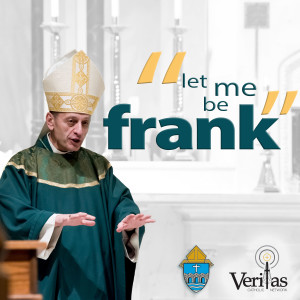Paul Axton explains that Ludwig Wittgenstein shifted philosophy and with it theology to a new appreciation of the embodied nature of language and thus the embedded contextual nature of being human.
If you enjoyed this podcast, please consider donating to support our work.
Music: Bensound
More Episodes
Distinguishing Kinds of Suffering Part II
 2022-01-17
2022-01-17
 214
214
Distinguishing Types of Suffering
 2022-01-15
2022-01-15
 229
229
Redirecting Desire through Hope
 2022-01-10
2022-01-10
 206
206
The Holy Spirit as Feminine
 2022-01-08
2022-01-08
 192
192
The Holy Spirit and the Crisis of Desire
 2022-01-03
2022-01-03
 205
205
Sermon: The Feast of the Holy Innocents
 2022-01-01
2022-01-01
 165
165
Sermon: The Virgin Birth as Refutation of Plato’s Allegory of the Cave
 2021-12-25
2021-12-25
 196
196
The Law of Life in the Spirit Displaces the Law of Sin and Death
 2021-12-20
2021-12-20
 215
215
Sermon: Immanuel Reveals the World as Iconic Divine Presence
 2021-12-18
2021-12-18
 166
166
Baptism as Defeat of the Lie of Sin
 2021-12-13
2021-12-13
 246
246
Sermon: Abba as Fulfillment of Cosmic Incorporation
 2021-12-11
2021-12-11
 192
192
Hegel, Serial Killers, Kierkegaard, Žižek and Jesus
 2021-12-06
2021-12-06
 239
239
Sermon: The Thanksgiving Character Engendered by the Spirit
 2021-12-04
2021-12-04
 160
160
Discerning the Secular and Satanic
 2021-11-29
2021-11-29
 274
274
Sermon: The Feminine Work of the Spirit Overcoming the Masculine Conception of God
 2021-11-27
2021-11-27
 177
177
Romans 7 as Descriptor of Experience of the Secular Age
 2021-11-22
2021-11-22
 213
213
Sermon: Distinguishing Redemptive and Sinful Suffering
 2021-11-20
2021-11-20
 186
186
Traversing the Fundamental Fantasy Through Baptism
 2021-11-15
2021-11-15
 187
187
Sermon: The Primal Desire: To Be Recognized by God
 2021-11-13
2021-11-13
 180
180
Dying With Christ in Žižek and Kierkegaard
 2021-11-08
2021-11-08
 261
261
Create your
podcast in
minutes
- Full-featured podcast site
- Unlimited storage and bandwidth
- Comprehensive podcast stats
- Distribute to Apple Podcasts, Spotify, and more
- Make money with your podcast
It is Free
You may also like

Life After Ministry


Cast The Word


Let Me Be Frank | Bishop Frank Caggiano’s Podcast | Diocese of Bridgeport, CT


The Bible Recap


The Bible in a Year (with Fr. Mike Schmitz)


- Privacy Policy
- Cookie Policy
- Terms of Use
- Consent Preferences
- Copyright © 2015-2024 Podbean.com



 iOS
iOS Android
Android